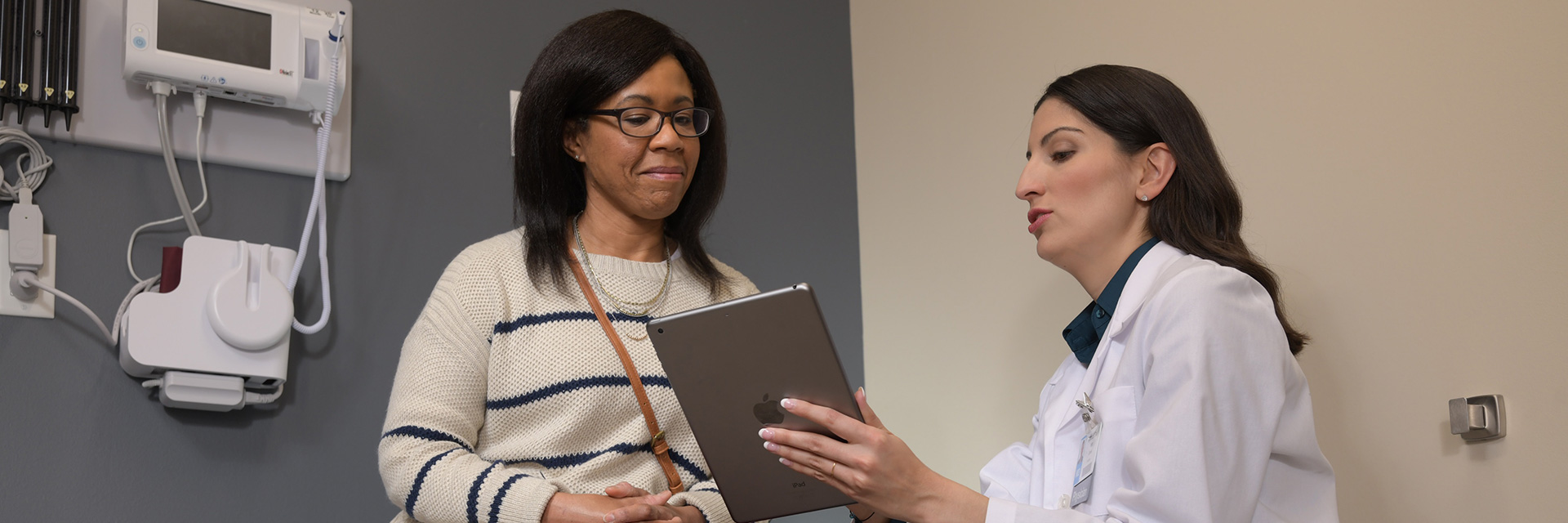Heart disease has long been viewed as a male issue, but in reality, it is the leading cause of death for both men and women in the United States. Despite increases in awareness over the past decades, only about half (56 percent) of women recognize that heart disease is their leading cause of death and even fewer can identify the symptoms, lead many to dismiss their symptoms as something less severe.
Whether it’s disbelief, lack of awareness or misdiagnosis, dismissing the symptoms of heart disease can be potentially devastating.
“When we talk about heart disease, the first thing that we talk about is chest pain, but it’s important for women to realize that when we say ‘pain’ a lot of times we mean things such as pressure or tightness, not really pain; there are a lot of other feelings that can be present as well,” says Nina Asrani, M.D., a cardiologist and physician on the medical staff at Texas Health Fort Worth and a member of Texas Health Heart and Vascular Specialists, a Texas Health Physician’s Group practice. “A lot of times women will just have really significant shortness of breath, nausea or indigestion; a feeling that goes up into the neck, jaw or shoulders, down the arms or between the shoulder blades.”
Asrani admits many of those symptoms can be really vague, but one of the main things she looks for is the timing of these symptoms. If you experience symptoms similar to these when you’re active or exercising but they go away as soon as you rest, that’s something you should address with your doctor.
“Certainly, if you have chest pain that is not going away at all, you need to see your doctor right away or call 9-1-1,” she says.
High blood pressure, high cholesterol, type 2 diabetes and smoking are key risk factors for developing heart disease in both men and women, but Asrani brings up a lesser known risk factor that is only applicable to women: pregnancy.
“Pregnancy is a very special time, but we tend to think of it by itself; we don’t realize that some things that happen during pregnancy can be important for your health going forward beyond pregnancy,” she explains. “Women will often be diagnosed with things such as gestational high blood pressure (pre-eclampsia) or gestational diabetes. Those things matter during the pregnancy, but they also mean later on these women are at a small but increased risk of a future heart event.”
In a recent study, nearly 60,000 women who did not have heart disease or any known risk factors for heart disease at the start of the study were followed for an average of 25 to 32 years after their first pregnancy. The risk of chronic high blood pressure was two to three times higher for women who had high blood pressure during their pregnancy. The risk of type 2 diabetes was 70 percent higher for these women while the risk of high cholesterol was 30 percent higher.
“Many researchers think that pregnancy acts as a [heart disease] stress test and that it helps to identify women who are predisposed to developing high blood pressure and other cardiovascular risk factors,” says Jennifer Stuart, a postdoctoral research fellow and author of the study.
Other risk factors include the following:
- Low HDL cholesterol
- Family history
- Race (Heart disease risk is higher among African Americans, Hispanic Americans, American Indians, native Hawaiians and some Asian Americans)
- Alcohol use
- Stress
- Advanced age
- Obesity
- Inactivity
- Menopause
- Inflammatory diseases
While some of these factors can be modified, treated or controlled, others cannot. The best way to prevent heart disease is to practice good nutrition, weight management and physical activity.
“I think the most important thing to remember about heart disease is that a large part of it is preventable,” Asrani says. “The American Heart Association estimates that 80 percent of people who have heart disease could have prevented it with lifestyle changes. That’s the simple things such as diet and exercise and quitting smoking. Smoking cessation is probably the single most important thing you can possibly do for your health. Lastly, know. your numbers: blood pressure, cholesterol and fasting blood sugar. If those numbers aren’t in the right ranges, start talking with your doctor to either work on diet or exercise or medicine if needed to get to the right levels.”
Asrani admits that while it’s hard for women to do at times, it is crucial to put your own health first and listen to your body, and to also be advocates for other women in your life.
“Just as our mothers, grandmothers or aunts were advocates for us when we were younger, we want to be an advocate for them as they get older,” she says. “Be involved with how they are doing or how they are feeling. Just as I said, look for complaints of chest pain or shortness of breath. If she’s having symptoms like those, certainly advocate for her and advocate getting to her doctor to talk about those symptoms.”
How Old is Your Heart?™ Take our assessment here to gauge your risk, and to find out more about Texas Health heart health services near you, visit our Heart and Vascular Services page.

